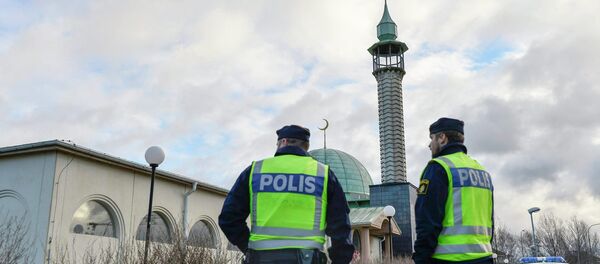Relevant questions were only asked in half of the cases where there was reason for further examination, the investigation found. Some of the most startling examples of the Migration Board's shortcomings involve applicants who'd undergone Daesh (ISIL/ISIS) weapons training and applicants who have been in the Eritrean military and may have possibly committed war crimes.
Fredrik Beijer, Director of Legal Affairs at the Migration Board, could not specify how many applicants have been granted residence permits they were not entitled to by Swedish law. However, he pointed out that he was absolutely dissatisfied with the result, especially given the fact that the board specifically focused on the attrition of specialists in 2016.
"I really cannot say [how many]. Normally, when there is an indication that someone may have committed a war crime, you go through the matter carefully, only to find that they either have not done it or that it cannot be proved. So it's really hard to say," Fredrik Beijer told Swedish Radio.
The board itself attributed the shortcomings to a lack of competent raw personnel. Four out of ten of Migration Board employees were recruited only in 2016 and seven out of ten have worked less than two years.
The Swedish Confederation of Professional Associations (SACO) and the Swedish Union of Civil Servants (ST) believe than the shortcomings are influenced by the fact that the management is focused on quantity rather than quality.
"Obviously, there was a directive that quality should not be compromised, but an increase in productivity is needed. Also, there are many fresh employees, so it's impossible that everything goes unnoticed," Oscar Jansson Magnusson of SACO, told Swedish Radio.
In 2016, Sweden, a nation of 10 million, processed 112,000 asylum applications, which is almost twice as many as in 2015. In 2015 and 2016, Sweden took in 163,000 and 29,000 asylum seekers respectively. In February, the Migration Board adjusted its prognosis for 2017 to 35,000. Additionally, about 105,000 applications from past years will have to be processed this year, which is why the Migration Board applied for 1.3 billion SEK ($140mln) in extra support from the government, the Swedish daily Svenska Dagbladet reported. In 2016, the Migration Board ran a budget of 12.4 billion SEK ($1.4bln) and had 8,000 employees.
Never miss a story again — sign up to our Telegram channel and we'll keep you up to speed!




